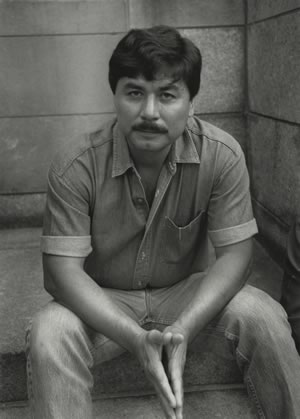Tirso Moreno
There are 2.7 million farmworkers in the United States. Farm work is one of the worst-paying jobs in the economy and one of the most dangerous. Laws protecting farmworkers are almost nonexistent. Migrant workers, who are not covered under the National Labor Relations Act, do not enjoy the same rights as citizens do to form a union and negotiate collectively. “Most people do not know what is happening in the fields of America,” Tirso Moreno says.
Tirso, the General Manager of the Farmworker Association of Central Florida (FACF), has a clear mission: to establish farm work as an honorable, legitimate, and safe profession and to ensure that farmworkers are treated with justice and dignity. Throughout the past 15 years, he has worked tenaciously with other advocates toward the FACF’s goals of establishing a living wage; creating adequate and affordable housing; securing safe, sanitary working conditions and access to decent educational opportunities; and giving farmworkers a voice in workplace decision-making.
Tirso grew up on his parents’ 20-acre farm in Tomalipes, Mexico, 40 miles from the Texas border. One of 11 kids, he learned as a young child how to pick corn and cotton. In 1971, at 17, with a ninth-grade education, he emigrated to the U.S. For the next 11 years, he and his wife worked as migrant workers, harvesting oranges, grapefruits, and lemons in Florida from November to May, and apples in Michigan from June to October. “We were happy doing what we were doing.” he remembers. “We felt proud to be able to be productive, but we were isolated from the rest of society. We had to learn how to survive.” During his years as a migrant, Tirso and his family, friends, and fellow farmworkers suffered many injustices which began to fuel his activism.
In 1976, Tirso became an active member of the United Farm Workers (UFW) union, which gave him job security, health benefits, better wages, and improved working conditions. “Having been a worker without a contract, without guarantee of salary or benefits, I saw I could do a lot for the people who didn’t have a contract.” From 1979 to 1982, he served on the negotiation committee for the collective bargaining agreement between the UFW and Coca Cola/Minute Maid. The organizing work was new to him: “It’s difficult to have confidence and credibility when most people don’t think we’re worth much. Usually organizers come from outside the community and have a strong academic education, are well-read, not from our race, speak nice, have a nice car, and good economic possibilities.” His passion for equality, his clear vision, and his hardworking spirit made him a natural. In 1982, Tirso became the lead organizer for the Farmworker Project of the Office for Farmworker Ministry in Apopka, Florida.
In 1983, along with his work for the Office for Farmworker Ministry, Tirso also helped to organize the Farmworker Association of Central Florida. Since FACF’s inception, Tirso has been General Coordinator. The FACF, which expanded statewide in 1992, now has four offices throughout Florida, a staff of 25, and a membership of more than 4,000 Latino, Haitian, and black families. The Association provides educational programs, legal assistance, a worker-owned credit union, and a food cooperative. “We have to do this work ourselves. We can’t get it done alone so we teach others about their rights and how to help themselves. These families have been denied opportunities many times,” he explains. “But I believe in myself, I believe in my people. We believe in ourselves.”
The FACF assists farmworkers by organizing around issues of fair wages and benefits and better living and working conditions. It also builds networks, forging national and international alliances with other farmworker, minority, and environmental justice organizations. Most importantly, FACF brings health issues to the forefront—advocating for immigrants’ access to public benefits; addressing health and safety issues that affect farmworkers; and participating in research studies on the health effects of pesticides on farmworkers.
Tirso serves on the boards of various coalitions of farmworker, environmental, and minority organizations in central Florida. He works to establish international cooperation with farmworkers on both sides of the Mexico/United States border. He travels throughout Florida arranging meetings with farmworkers to address community problems. As he explains, “We like to promote our people as respected leaders in our community. We have a right to represent our own people.”
“There are many farmworkers who want to see changes being done, and they get together and talk about those changes,” Tirso Moreno says about those who join FACF. “That gives me motivation because these people want to do good things for the community.”
 Photo by Dorothea von Haeften
Photo by Dorothea von Haeften